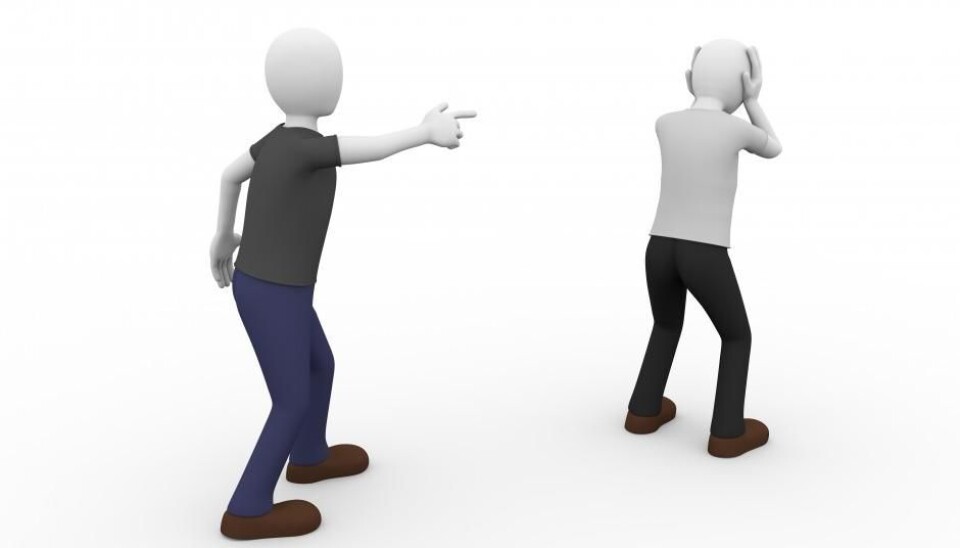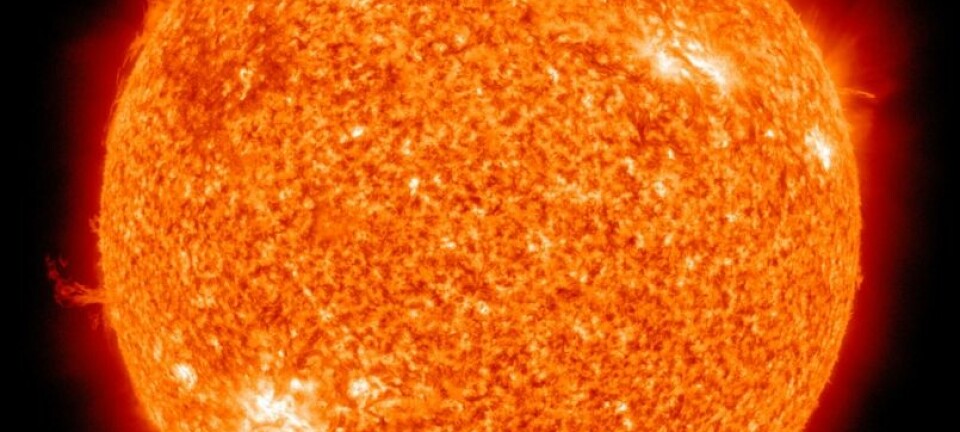
We are much too ready to blame
Do we really deserve to be blamed for actions that we have no direct control over? No, says philosopher Andreas Brekke Carlsson.
Denne artikkelen er over ti år gammel og kan inneholde utdatert informasjon.
“Let’s say that you forget a friend’s birthday. This is something you have no control over. You didn’t remember it. Still, you blame yourself for. You might also be blamed by others.”
“Or let’s say you get malicious pleasure out of beating a rival. But this too is a feeling you have no direct control of, and again it is something you shouldn’t be censured for.”
Should you be nailed at any time for such oversights or feelings? And should you blame others for such things?
No, we deserve criticism much less often than we normally think, contends Andreas Brekke Carlsson.

He recently defended this claim in his doctoral dissertation in philosophy at the University of Oslo.
Blamed for ignorance
Perhaps Carlsson’s most radical argument is that we don’t merit criticism for wrongdoings the emerge from our moral ignorance.
It’s different if we consciously decide to refrain from acquiring knowledge about something. In that case we can be responsible for actions that can be traced to our resulting ignorance.
“But often our ignorance cannot be linked to such conscious choices,” he maintains.
Re-evaluate your condemnation of others
We don’t merit criticism for wrongdoings the emerge from our moral ignorance.
Andreas Brekke Carlsson
Someone blames you for forgetting something. A person might blame you for your emotional reactions. You are condemned for actions that stem from your ignorance.
“These are all conditions and actions you don’t have direct control over,” asserts Carlsson, and follows up with the question:
“Can we really be morally responsible for such things that we don’t control?”
“No,” answers the philosopher. He thinks many of us need to reconsider our ordinary perceptions of when the people around us deserve blame.
And while we are at it, we might consider whether we are too eager to shoulder ourselves with blame and guilt.
Only when you deserve the pain
The feeling of guilt will always involve an element of pain. If you reproach yourself or point the finger at others for something this means that you are subjecting yourself or the other persons to this pain.
“But we don’t deserve to feel pain for something we have no control over.”
On the basis of this stance, Carlsson has developed a new theory about blameworthiness. It boils down to the following: If you are to pin blame others, it must only be because they really deserve the pain associated with being the one who blames himself or herself – in other words, the person who feels guilt.
----------------------------------------------------
Read this article in Norwegian at forskning.no
Translated by: Glenn Ostling


































